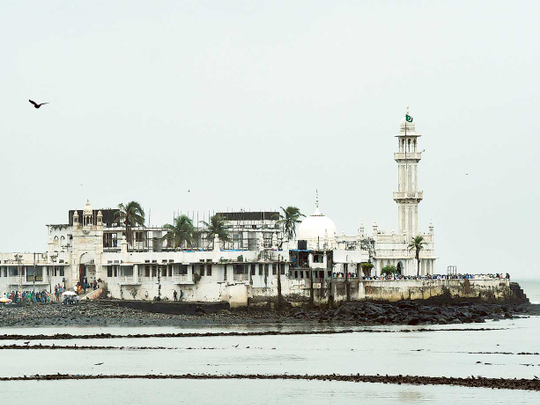
Mumbai: The Bombay High Court today pronounced a landmark judgement lifting a ban imposed on women from entering the inner sanctum of the Haji Ali Dargah, a religious place visited by millions of devotees.
A division bench of Justices V M Kanade and Revati Mohite Dere said, “We hold that the ban imposed by the dargah trust, prohibiting women from entering the sanctum sanctorum of the Haji Ali Dargah contravenes Articles 14, 15 and 25 of the Constitution of India. Women should be permitted to enter the sanctum sanctorum at par with men.”
According to Article 14 — Right to Equality, “The State shall not deny to any person equality before the law or the equal protection of the laws within the territory of India.” As per Article 15, “A citizen cannot be discriminated on grounds of religion, race, caste, sex, place of birth or any of them.” And under Article 25 — Right to Freedom of Religion — an Indian citizen is entitled to freedom of conscience and the right freely to profess, practice and propagate religion.
The court’s verdict was a result of a public interest litigation (PIL) filed by two women, Zakia Soman and Noorjehan Niaz, of Bharatiya Muslim Mahila Andolan, challenging the ban on women’s entry into the inner area of the Dargah from 2012 onwards.
The court has, however, stayed its order for six weeks following a plea by the Haji Ali Dargah Trust, which wants to challenge it in the Supreme Court.
Whilst the petitioners welcomed the verdict and described it as “historic, fair and just,” several Muslim clerics have raised objections to the lifting of the ban. A trustee of the Haji Ali Dargah, Sohail Khandwani, told Gulf News, “We have yet to receive the copy of the judgement and once we get it we will study it carefully to understand the reasoning behind the Bombay High Court’s verdict.
“The court has given us six weeks time and the trustees and other members will meet, discuss and plan our course of action. Yes, we plan to take it up in the Supreme Court but only after a thorough study.”
According to him, the issue is not simple and involves the law of the land, Sharia as well as the faith and trust of millions who come here daily to offer prayers and for fulfilment of their wishes. He defended the ban and said, “There is no gender bias but we have to consider religious sentiments. Moreover, since the Dargah is situated in the heart of the city, we have also to take law and order situation into account.”
He also added whilst the Indian Constitution provides Fundamental Rights to every citizen, “The Trust also has its rights.”
Khandwani also emphasised that though women were allowed to enter the inner sanctum until 2012, the Dargah decided to restrict them for security reasons. “It was just a question of a few feet and not that women were not allowed inside completely. It was done mainly for security reasons.”
Situated about 500 yards from the Mumbai shoreline in the midst of the Arabian Sea, the Haji Ali Dargah houses a tomb of Muslim Saint Pir Haji Ali Shah Bukhari as well as a Masjid which attracts thousands of devotees who trek to this shrine daily.
Meanwhile, the court refused to accept the argument of the Trust that the ban was imposed for safety and security of women, in particular, to prevent sexual harassment of women in places of worship. It said, “The state government and the Haji Ali Dargah Trust will have to take proper steps to ensure safety and security to women entering the dargah.”












